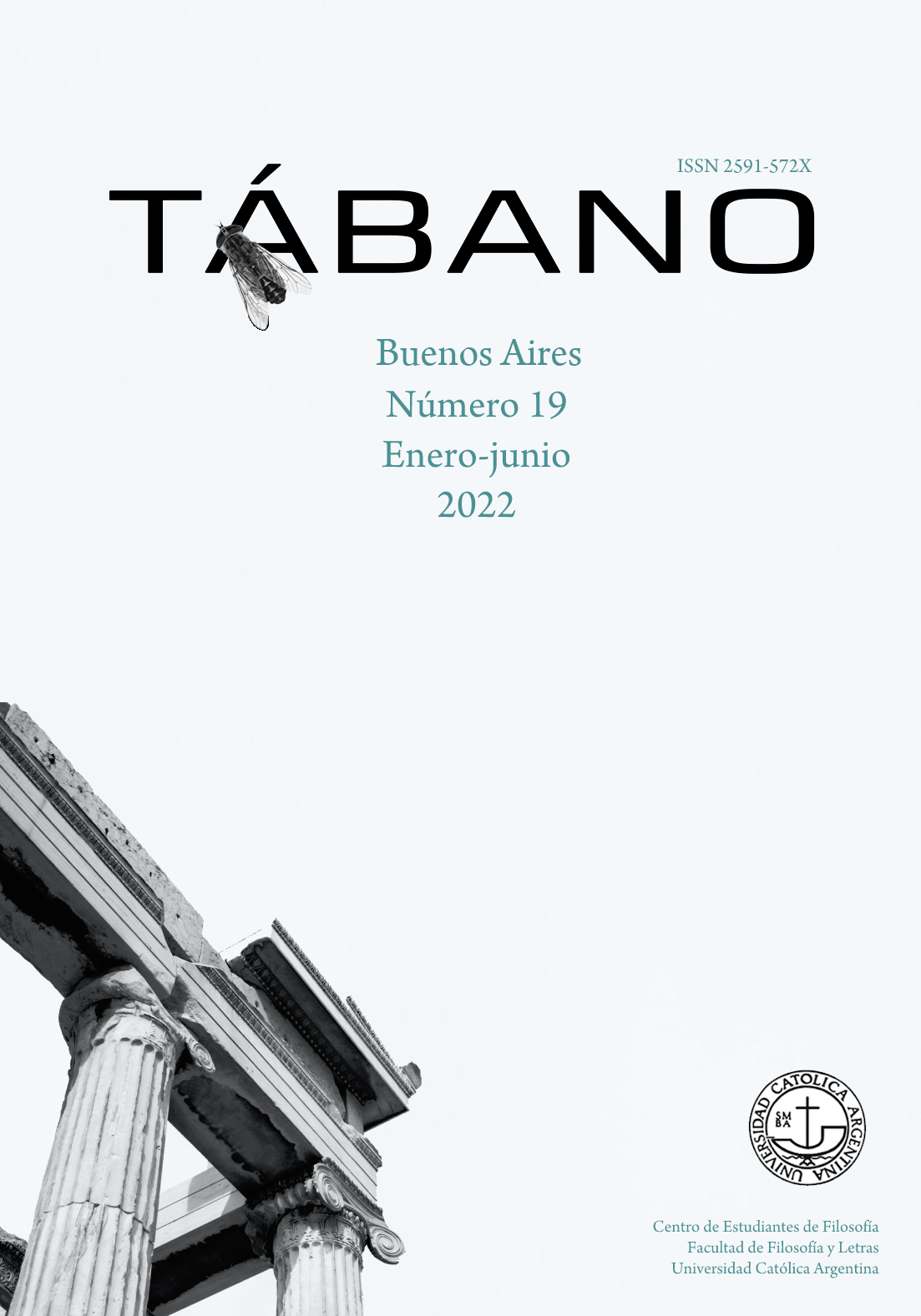Contributions of the Wallis-Hobbes Controversy to the Discussions on the Foundations of Infinite Mathematics
DOI:
https://doi.org/10.46553/10.46553/tab.19.2022.p23-36Keywords:
Wallis, Hobbes, infinite mathematics, arithmetic of infinities.Abstract
In this paper we will deal with some aspects of the controversy between Wallis and Hobbes concerning the foundations of infinite mathematics and the use of infinite and infinitely small quantities in mathematics. Thus, after some initial clarification on Wallis’s arithmetic of infinities, we will focus particularly on three main topics of this discussion: the nature of infinitesimals and the validity of their use in mathematics; the infinite number and the supposition of what we will call “the completeness of the series”; and the conception that the “excess” disappears, taking the series to infinity.
Downloads
References
Andersen, K. (1985). Cavalieri’s Method of Indivisibles. En Archive for History of Exact Sciences, vol. 31, pp. 291-367.
Aristóteles (1995). Física (introducción, traducción y notas de Guillermo R. de Echandía). Madrid: Gredos.
Beeley, P. (1996). Kontinuität und Mechanismus. Zur Philosphie des jungen Leibniz in ihrem Ideengeschichtlichen Kontext (Studia Leibnitiana Supplementa, 30). Stuttgart: Franz Steiner Verlag.
Beeley, P. (2013). ‘Nova methodus investigandi’. On the Concept of Analysis in John Wallis’s Mathematical Writings. En Studia Leibnitiana, vol. 45(1), pp. 42-58.
Bernstein, H. (1980). Conatus, Hobbes, and the young Leibniz. En Studies in History and Philosophy of Science, vol. 11(1), pp. 25-37.
Cavalieri, B. (1653). Geometria indivisibilibus continuorum quadam nova ratione promota. Bologna.
Crippa, D. (2016). Impossibility results: from geometry to analysis. A study in early modern conceptions of impossibility. Tesis doctoral. Paris: Université Paris Diderot Paris 7.
Esquisabel, O. y Raffo Quintana, F. (2017). Leibniz in Paris: a discussion concerning the infinite number of all units. En Revista Portuguesa de Filosofía, vol. 73(3-4), pp. 1319-1342.
Esquisabel, O. y Raffo Quintana, F. (2021). Fiction, possibility and impossibility: Three kinds of mathematical fictions in Leibniz’s work. En Archive for History of Exact Sciences, vol. 75/6, pp. 613-647.
Euclides (1991). Elementos. Libros I-IV (introducción de Luis Vega, traducción y notas de María Luisa Puertas Castaños). Madrid: Gredos.
Froidmont, L. (1631). Labyrinthus sive de compositione continui. Anvers.
Hobbes, T. (1665). Elementorum Philosophiae Sectio Prima De Corpore. Londres.
Hobbes, T. (1845a). The English Works of Thomas Hobbes (ed. William Molesworth). Londres: John Bohn. Vol. VII.
Hobbes, T. (1845b). Opera Philosophica quae latina scripsit omnia (ed. William Molesworth). Londres, Vol. V.
Jesseph, D. (1999). Squaring the Circle. The War between Hobbes and Wallis. Chicago & London: The University of Chicago Press.
Joven, F. (1997). Los infinitesimales como ficciones útiles para Leibniz: la polémica en la academia de París. En Theoria - Segunda Época, vol. 12/2, pp. 257-279.
Katz, M. y Sherry, D. (2012). Infinitesimals, Imaginaries, Ideals, and Fictions. En Studia Leibnitiana, vol. 44/2, pp. 168-169.
MacDonald Ross, G (2007). Leibniz’s Debt to Hobbes. En Phemister, P. y Brown, S. (eds.). Leibniz and the English-Speaking World (pp. 19-33). Dordrech: Springer
Mancosu, P. (1996). Philosophy of Mathematics and Mathematical Practice in the Seventeenth Century. New York and Oxford: Oxford University Press.
Probst, S. (2018). The Relation between Leibniz and Wallis: an Overview from New Sources and Studies. En Quaderns d’Història de l’Enginyeria, vol. XVI, pp. 189-208.
Raffo Quintana, F. (2018). Leibniz on the requisites of an exact arithmetical quadrature. En Studies in History and Philosophy of Science, vol. 67, pp. 65-73.
Raffo Quintana, F. (2020). La visión de Leibniz sobre el producto infinito de Wallis. En Tópicos. Revista de Filosofía de Santa Fe, vol. 39, pp. 118-148.
Wallis, J. (1655). De sectionibus conicis. Nova Methodo Expositis Tractatus. Oxford.
Wallis, J. (1656a). Arithmetica infinitorum. Oxford.
Wallis, J. (1656b). Due correction for Mr Hobbes· Or Schoole discipline, for not saying his lessons right. In answer to his Six lessons, directed to the professors of mathematicks. / By the professor of geometry. Oxford.
Wallis, J. (1657). Mathesis universalis; sive, Arithmeticum opus Integrum, tum Numerosam Arithmeticam tum Speciosam complectens. Oxford.
Wallis, J. (1670). Mechanica sive de motu tractatus geometricus. Oxford.
Wallis, J. (1671). An Answer to Four Papers of Mr. Hobs, Lately Published in the Months of August, and This Present September, 1671. En Philosophical Transactions. vol. 6, pp. 2241-2244.
Wallis, J. (1671). Dr. John Wallis His Answer, by Way of Letter to the Publisher, to the Book, Entituled Lux Mathematica, &c. Described in Numb. 86. of These Tracts. En Philosophical Transactions, vol. 7, pp. 5067-5073.
Downloads
Published
How to Cite
Issue
Section
License
Copyright (c) 2022 Federico Raffo Quintana

This work is licensed under a Creative Commons Attribution-NonCommercial-ShareAlike 4.0 International License.


